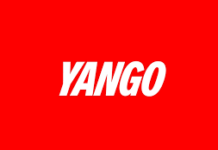- The board expected Pakistan’s ‘ease of doing business’ ranking at 100 instead of 136
ISLAMABAD: Although the government welcomed Pakistan’s improvement by 11 points in the World Bank’s index of ease of doing business this year, the Board of Investment (BoI) seems unsatisfied with the ranking, as it expected Pakistan to be ranked around 100.
As per the steps undertaken to facilitate business activities in Pakistan during the last one year, the country’s ranking should have been improved by around 50 points, according to an official at the BoI. However, he added, the country only jumped up 11 places on the World Bank’s Ease of Doing Business Index and clinched 136th position, which too was a positive development considering the country’s performance in the last 15 years.
“Whatever improvement has been made in the index was because of the hard work done by BoI and reforms introduced by previous federal and provincial governments,” he claimed. “Even the improvement by 11 points wouldn’t have been possible had the BoIs (BoI Punjab and Sindh) not forced the World Bank to accept its initiatives formulated last year.”
He, however, admitted that Pakistan failed to take required steps in order to achieve maximum results due to a lack of interest on part of the former prime minister and also due to a change at the country’s helm of affairs.
“Unfortunately, the top officials of the present government also showed little interest in the matter. In India and China, unlike Pakistan, the head of the government personally monitors the reforms required to improve its position in the index,” he said.
As per the WB report, Pakistan carried out three reforms during the last year in the areas of starting a business, registering property and resolving insolvency. Last year when Pakistan was recorded at 147th position out of 190 nations surveyed in the index, the BoI, apart from taking some immediate steps, had also protested against the criterion of WB.
The government, through BoI, had strongly taken up the issue with WB by raising four major objections related to recognition of reforms, updating and expanding the contributors’ list, methodology change and requirement of data corrections.
According to available documents, a visiting WB team was informed that four major reforms were made by Pakistan that the bank recognized yet there were more than 15 reform actions that WB didn’t.
For instance, last year, the WB’s Doing Business Team had lauded the reforms on ‘registering a property in Lahore’ with certificates, but yet the reforms were not recognised.
The prime minister had also taken notice of the non-recognition of reforms by WB last year. In 2017, Pakistan executed three reforms and improved its ranking by four points (from 148 to 144 in 2017), but strangely, with four reforms recognised, the ranking dropped three points (144 to 147 in 2018).
The WB team was informed by the government that one of the issues of concern was related to the feedback of contributors.
Interestingly, when the government departments like BoI contacted the contributor, many of them even didn’t acknowledge their name on the Doing Business Contributor list which was a surprise considering the flagship report had the names that questioned the reason for having them on the contributor list.
























there is urgent need to give buck up call, by those who matter, to the institutions like Board of Investment (BOI) both at the Federal Level as well as at the provincial level to reinvigorate the concerned quarters for the investment promotion in the industrialization in the country along with transfer of technology, doing home work so efficiently and expeditiously for the identification of viable projects and inviting prospecting investors world level. Similar exercise is direly needed on other sectors like infrastructure, tourism, sports etc. to be undertaken on war footings. China, South Korea and even Japan had made progress in short span of time adopting this strategy.